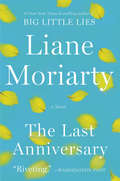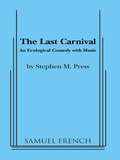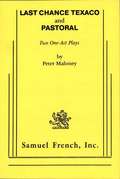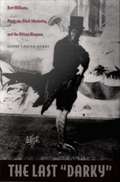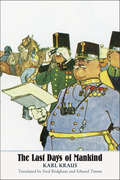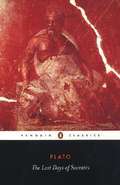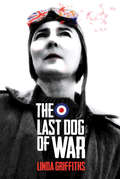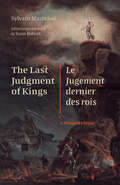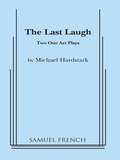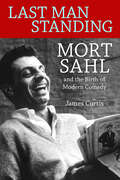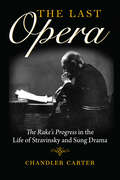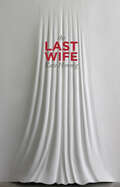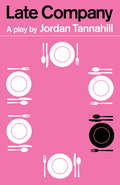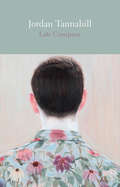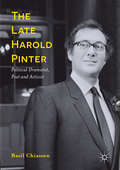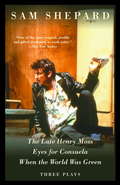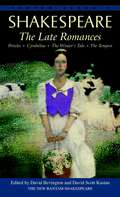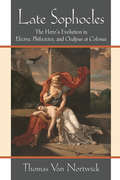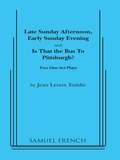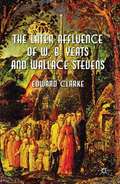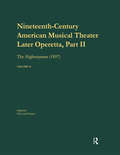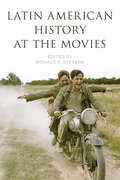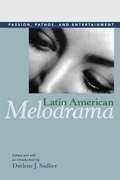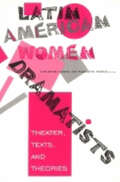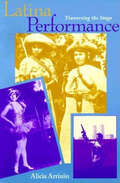- Table View
- List View
The Last Anniversary: A Novel
by Liane MoriartyFrom Liane Moriarty, author of the #1 New York Times bestsellers Big Little Lies and Truly Madly Guilty, comes an unforgettable novel defined by her signature sharp wit, page-turning storyline, and lovable and eccentric characters.Sophie Honeywell always wondered if Thomas Gordon was the one who got away. He was the perfect boyfriend, but on the day he was going to propose, she broke his heart. A year later he married his travel agent, while Sophie has been mortifyingly single ever since. Now Thomas is back in her life because Sophie has unexpectedly inherited his aunt Connie's house on Scribbly Gum Island—home of the famously unsolved Munro Baby mystery.Sophie moves onto the island and begins a new life as part of an unconventional family, where it seems everyone has a secret. Grace, a beautiful young mother, is feverishly planning a shocking escape from her perfect life. Margie, a frumpy housewife, has made a pact with a stranger, while dreamy Aunt Rose wonders if maybe it's about time she started making her own decisions.As Sophie's life becomes increasingly complicated, she discovers that sometimes you have to stop waiting around—and come up with your own fairy-tale ending.
Last Carnival
by Stephen M. PressEcological comedy with music / 6 or more actors to play over 15 characters / Unit set / Everything at carnival Earth is run by Carny who only cares about fun and a good show. Performers include Paul Bunyan, Buffalo Bill, John Henry, Robert Fulton and Faustus who will sell you anything-- from the Big Bomb to a cure for dandruff! Endangered species are mowed down at The Shooting Gallery and the Redwood Forests can be lost at the Wheel of Fortune. Other characters include the speedway Devil Driver, the Rotten Roll Band, Filthy Flora whose ectocyst act will surprise you, and the one who knows all-- Miriam the Mentalist. All perform and pollute the earth, but it's done with crazy comedy and famous music. Who cares about tomorrow!? Ask the kid who comes to the carnival. / "Haunting, magical, timeless and entertaining.... As you enter the strange world of this play, be prepared to be hustled, amused, shocked and enlightened."-- Taconic Newspapers.
Last Chance Texaco/Pastoral
by Peter MaloneyDrama / 3f / Interior / Originally staged to acclaim at NY's Ensemble Studio Theatre, this is a haunting, lyrical play set in a gas station run by a mother and daughter in a small Texas town. Late one night, a city woman has a flat. Her unusual life intersects with theirs as they fix her tire. This gripping piece of theatre is an excellent source of monologue and scene material. Published with Pastoral.
The Last "Darky": Bert Williams, Black-On-Black Minstrelsy, and the African Diaspora
by Louis Chude-SokeiThe Last "Darky" establishes Bert Williams, the comedian of the late nineteenth century and early twentieth, as central to the development of a global black modernism centered in Harlem's Renaissance. Before integrating Broadway in 1910 via a controversial stint with the Ziegfeld Follies, Williams was already an international icon. Yet his name has faded into near obscurity, his extraordinary accomplishments forgotten largely because he performed in blackface. Louis Chude-Sokei contends that Williams's blackface was not a display of internalized racism nor a submission to the expectations of the moment. It was an appropriation and exploration of the contradictory and potentially liberating power of racial stereotypes. Chude-Sokei makes the crucial argument that Williams's minstrelsy negotiated the place of black immigrants in the cultural hotbed of New York City and was replicated throughout the African diaspora, from the Caribbean to Africa itself. Williams was born in the Bahamas. When performing the "darky," he was actually masquerading as an African American. This black-on-black minstrelsy thus challenged emergent racial constructions equating "black" with African American and marginalizing the many diasporic blacks in New York. It also dramatized the practice of passing for African American common among non-American blacks in an African American-dominated Harlem. Exploring the thought of figures such as Booker T. Washington, W. E. B. Du Bois, Marcus Garvey, and Claude McKay, Chude-Sokei situates black-on-black minstrelsy at the center of burgeoning modernist discourses of assimilation, separatism, race militancy, carnival, and internationalism. While these discourses were engaged with the question of representing the "Negro" in the context of white racism, through black-on-black minstrelsy they were also deployed against the growing international influence of African American culture and politics in the twentieth century.
The Last Days of Mankind
by Karl Kraus Edward Timms Fred BridghamOne hundred years after Austrian satirist Karl Kraus began writing his dramatic masterpiece, "The Last Days of Mankind "remains as powerfully relevant as the day it was first published. Kraus's play enacts the tragic trajectory of the First World War, when mankind raced toward self-destruction by methods of modern warfare while extolling the glory and ignoring the horror of an allegedly "defensive" war. This volume is the first to present a complete English translation of Kraus's towering work, filling a major gap in the availability of Viennese literature from the era of the War to End All Wars. Bertolt Brecht hailed "The Last Days" as the masterpiece of Viennese modernism. In the apocalyptic drama Kraus constructs a textual collage, blending actual quotations from the Austrian army's call to arms, people's responses, political speeches, newspaper editorials, and a range of other sources. Seasoning the drama with comic invention and satirical verse, Kraus reveals how bungled diplomacy, greedy profiteers, Big Business complicity, gullible newsreaders, and, above all, the sloganizing of the press brought down the Austro-Hungarian Empire. In the dramatization of sensationalized news reports, inurement to atrocities, and openness to war as remedy, today's readers will hear the echo of the fateful voices Kraus recorded as his homeland descended into self-destruction.
The Last Days of Socrates: Euthyphro - The Apology - Crito - Phaedo
by Plató Hugh Tredennick Harold TarrantThe trial and condemnation of Socrates on charges of heresy and corrupting young minds is a defining moment in the history of Classical Athens. In tracing these events through four dialogues, Plato also developed his own philosophy, based on Socrates' manifesto for a life guided by self-responsibility. Euthyphrofinds Socrates outside the courthouse, debating the nature of piety, while The Apologyis his robust rebuttal of the charges of impiety and a defence of the philosopher's life. In the Crito, while awaiting execution in prison, Socrates counters the arguments of friends urging him to escape. Finally, in the Phaedo, he is shown calmly confident in the face of death, skilfully arguing the case for the immortality of the soul. Hugh Tredennick's landmark 1954 translation has been revised by Harold Tarrant, reflecting changes in Platonic studies, with an introduction and expanded introductions to each of the four dialogues.
The Last Dog of War
by Linda GriffithsIn 2005 Linda made a trip with her father to the last reunion of his RAF comrades, the 49th Squadron, Bomber Command. Intertwining her father’s experiences of a long-ago war with the war between a father and daughter, Linda Griffiths unveils an emotional chronicle of a family navigating a familiar yet foreign relationship.
The Last Judgment of Kings / Le Jugement dernier des rois: A Bilingual Edition (Scènes francophones: Studies in French and Francophone Theater)
by Sylvain Maréchal (1750-1803)First performed the day after Marie-Antoinette’s beheading, Le Jugement dernier des rois stages the burlesque trial of the remaining kings and queens of Europe—paraded in chains like animals, made to brawl over a barrel of crackers, and finally obliterated by a spectacular volcanic eruption. Such is the shocking context—at once tragic and farcical—of the most infamous play of the French Revolution, familiar to all specialists of the period. Until now, however, no standalone critical edition or English translation of this historic play existed. This bilingual edition revives Maréchal’s play and reveals its centrality to scholarly debates about Revolutionary notions of justice, religion, commemoration, comedy, and propaganda. Provocative, written in accessible prose, and short—perfect for students in a French or history seminar—Le Jugement dernier des rois offers an ideal introduction to the most important and contentious questions of the Revolutionary period. Joué pour la première fois le lendemain de l’exécution de Marie-Antoinette, Le Jugement dernier des rois met en scène le procès burlesque des autres rois et reines d’Europe : exhibés et enchaînés tels des animaux, contraints de se battre pour un tonneau de biscuits, et finalement anéantis par l’éruption spectaculaire d’un volcan. Tel est le contexte scandaleux—tragédie et farce à la fois—de la pièce la plus célèbre de la Révolution française, bien connue de tous les spécialistes de cette période. Jusqu’à maintenant, pourtant, il n’existait ni édition critique ni traduction anglaise de cet ouvrage historique. Notre édition bilingue fait revivre la pièce de Maréchal et la replace au centre des plus grands débats chez les historiens de la Révolution, traitant de justice, religion, commémoration, comédie, et propagande. Provocateur, facile à lire, et concis—parfaitement adapté aux étudiants d’un cours de français ou d’histoire—Le Jugement dernier des rois propose ainsi une introduction idéale à la période révolutionnaire et à ses principales controverses. Published by Bucknell University Press. Distributed worldwide by Rutgers University Press.
Last Laugh
by Michael Hardstack4m, 1f / Umbrella title for two One-Act Plays by Michael Hardstark, based on the works of Anton Chekhov - The Cure and In the Cemetery.
Last Man Standing: Mort Sahl and the Birth of Modern Comedy
by James CurtisA Times Literary Supplement 2017 Book of the YearOn December 22, 1953, Mort Sahl (1927–2021) took the stage at San Francisco's hungry i and changed comedy forever. Before him, standup was about everything but hard news and politics. In his wake, a new generation of smart comics emerged—Shelley Berman, Mike Nichols and Elaine May, Lenny Bruce, Bob Newhart, Dick Gregory, Woody Allen, and the Smothers Brothers, among others. He opened up jazz-inflected satire to a loose network of clubs, cut the first modern comedy album, and appeared on the cover of Time surrounded by caricatures of some of his frequent targets such as Dwight Eisenhower, Richard Nixon, Adlai Stevenson, and John F. Kennedy. Through the extraordinary details of Sahl's life, author James Curtis deftly illustrates why Sahl was dubbed by Steve Allen as “the only real political philosopher we have in modern comedy.”Sahl came on the scene the same year Eisenhower and Nixon entered the White House, the year Playboy first hit the nation's newsstands. Clad in an open collar and pullover sweater, he adopted the persona of a graduate student ruminating on current events. “It was like nothing I'd ever seen,” said Woody Allen, “and I've never seen anything like it after.” Sahl was billed, variously, as the Nation's Conscience, America's Only Working Philosopher, and, most tellingly, the Next President of the United States. Yet he was also a satirist so savage the editors of Time once dubbed him “Will Rogers with fangs.”Here, for the first time, is the whole story of Mort Sahl, America's iconoclastic father of modern standup comedy. Written with Sahl's full cooperation and the participation of many of his friends and contemporaries, it delves deeply into the influences that shaped him, the heady times in which he soared, and the depths to which he fell during the turbulent sixties when he took on the Warren Commission and nearly paid for it with his career.
The Last Opera: <I>The Rake’s Progress</I> in the Life of Stravinsky and Sung Drama (Russian Music Studies)
by Chandler CarterFrom the fall of 1947 through the summer of 1951 composer Igor Stravinsky and poet W. H. Auden collaborated on the opera The Rake’s Progress. At the time, their self-consciously conventional work seemed to appeal only to conservative audiences. Few perceived that Stravinsky and Auden were confronting the central crisis of the Modern age, for their story of a hapless eighteenth-century Everyman dramatizes the very limits of human will, a theme Auden insists underlies all opera. In The Last Opera, Chandler Carter weaves together three interlocking stories. The central and most detailed story explores the libretto and music of The Rake’s Progress. The second positions the opera as a focal point in Stravinsky's artistic journey and those who helped him realize it—his librettists, Auden and Chester Kallman; his protégé Robert Craft; and his compatriot, fellow composer, and close friend Nicolas Nabokov. By exploring the ominous cultural landscape in which these fascinating individuals lived and worked, the book captures a pivotal twenty-five-year span (from approximately 1945 to 1970) during which modernists like Stravinsky and Auden confronted a tectonic disruption to their artistic worldview. Ultimately, Carter reveals how these stories fit into a larger third narrative, the 400-year history of opera. This richly and lovingly contextualized study of The Rake’s Progress sheds new light on why, despite the hundreds of musical dramas and theater pieces that have been written since its premier in 1951, this work is still considered the "the last opera."
The Last Wife
by Kate HennigKate Parr is smart, confident, and passionate: a rising star in a world of intense competition. But her obligatory marriage to Henry is rife with the threat of violence and the lure of deceit; her secret liaisons with Thom, her husband’s former brother-in-law, could send her to an early grave; and her devotion to the education and equal rights of Henry’s daughters is putting an even bigger strain on her marriage. Does Kate risk her life to gain authority in both her relationship and her political career? Which love will she be led to if she follows her heart? And what kind of future is there for her children if she makes a crucial mistake?
Late Company
by Jordan TannahillOne year after the suicide of their teenage son Joel, Debora and Michael Shaun-Hastings sit down to dinner with their son’s bully and his parents. Closure is on the menu, but accusations are the main course as everyone takes a turn in the hot seat for their real or imagined part in the tragedy. Blame shifts over the course of the evening from one person to the next, and questions are raised that no one is prepared to answer.
Late Company: Second Edition
by Jordan TannahillOne year after the suicide of their teenage son Joel, Debora and Michael Shaun-Hastings sit down to dinner with their son’s bully and his parents. Closure is on the menu, but accusations are the main course as everyone takes a turn in the hot seat for their real or imagined part in the tragedy. Blame shifts over the course of the evening from one person to the next, raising questions no one is prepared to answer.
The Late Harold Pinter
by Basil ChiassonThis volume is the first to provide a book-length study of Pinter's overtly political activity. With chapters on political drama, poetry, and speeches, it charts a consistent tension between aesthetics and politics through Pinter's later career and defines the politics of the work in terms of a pronounced sensory dimension and capacity to affect audiences. The book brings to light unpublished letters and drafts from the Pinter Archive in the British Library and draws his political poems and speeches, which have previously been overshadowed by his plays, into the foreground. Intended for students, instructors, and researchers in drama and theatre, performance studies, literature, and media studies, this book celebrates Pinter's later life and work by discerning a coherent political voice and project and by registering the complex ways that project troubles the divide between aesthetics and politics.
The Late Henry Moss, Eyes for Consuela, When the World Was Green: Three Plays
by Sam ShepardThese three plays by Pulitzer Prize winner Sam Shepard are bold, explosive, and ultimately redemptive dramas propelled by family secrets and illuminated by a searching intelligence. In The Late Henry Moss--which premiered in San Francisco, starring Sean Penn and Nick Nolte--two estranged brothers confront the past as they piece together the drunken fishing expedition that preceded their father's death. In Eyes for Consuela, based on Octavio Paz's classic story "The Blue Bouquet," a vacationing American encounters a knife-toting Mexican bandit on a gruesome quest. And in When the World Was Green, cowritten with Joseph Chaikin, a journalist in search of her father interviews an old man who resolved a generations-old vendetta by murdering the wrong man. Together, these plays form a powerful trio from an enduring force in American theater.
The Late Romances: Pericles, Cymbeline, The Winter's Tale, The Tempest
by William ShakespeareThe first of Shakespeare's late romances moves spectacularly from one dramatic period to another as the hero, Pericles, sails off to adventure and love, and experiences what for him is a miracle. Cymbeline: A favorite romantic drama, this play of a wife unjustly accused of faithlessness moves from a world of intrigue and slander to one of reconciliation and forgiveness, and contains two of Shakespeare's most poignantly beautiful songs. The Winter's Tale: From a darkly melodramatic beginning to a joyous pastoral ending, this romance of a jealous king and his long-suffering queen is superb entertainment, with revelations, plot twists, and a final compelling theatrical moment of discovery. The Tempest: This tale of the exiled Duke of Milan, marooned on an enchanted island, is so richly filled with music and magic, romance and comedy, that its theme of love and reconciliation offers a splendid feast for the senses and the heart.
Late Sophocles: The Hero’s Evolution in Electra, Philoctetes, and Oedipus at Colonus
by Thomas Van NortwickOnly a few plays by Sophocles--one of the great tragic playwrights from Classical Athens--have survived, and each of them dramatizes events from the rich store of myths that framed literature and art. Sophocles' treatment evokes issues that were vividly contemporary for Athenian audiences of the Periclean age: How could the Athenians incorporate older, aristocratic ideas about human excellence into their new democratic society? Could citizens learn to be morally excellent, or were these qualities only inherited? What did it mean to be a creature who knows that he or she must die? Late Sophocles traces the evolution of the Sophoclean hero through the final three plays, Electra, Philoctetes, and Oedipus at Colonus. The book's main thesis, that Sophocles reimagined the nature of the tragic hero in his last three works, is developed inductively through readings of the plays. This balanced approach, in which a detailed argument about the plays is offered in a format accessible to nonspecialists, is unusual--perhaps unique--in contemporary Classical scholarship on Sophocles. This book will appeal to nonspecialist readers of serious literature as well as scholars of classical and other literatures. While including ample guidance for those not familiar with the plays, Late Sophocles goes beyond a generalized description of "what happens" in the plays to offer a clear, jargon-free argument for the enduring importance of Sophocles' plays. The argument's implications for longstanding interpretational issues will be of interest to specialists. All Greek is translated.
Late Sunday Afternoon, Early Sunday Evening
by Jean Lenox ToddieComedy/Drama / 2 f. / Bare stage / Lovely Olivia walks through the rooms of her Boston home with hyacinths in her arms and amethysts in her ears, remembering her past incarnations and finding this one lacking in excitement. Her granddaughter is due; she has an announcement to make!
The Later Affluence of W. B. Yeats and Wallace Stevens
by Edward ClarkeSurveying the later work of W. B. Yeats and Wallace Stevens, Edward Clarke unfolds their very last poems and considers the two poets' relations with western literature and tradition. This book shows how these two latecomers transform the ways in which we read earlier poets.
Later Operetta 2: the Highwayman, Music by Reginald DeKoven, Libretto by Harry B. Smith, 1897 (Nineteenth-Century American Musical Theater Series)
by Reginald De KovenThe most successful American-born composer of operetta at the end of the nineteenth century was Reginald de Koven. The work reprinted in this volume, The Highwayman, is arguably his best work, although he is better known for the earlier Robin Hoodwixh its evergreen wedding ballad "Oh Promise Me." (Robin Hood is available as a reprint in the 1990 volume American Opera and Music for the Stage, in the G.K. Hall series Three Centuries of American Music.) The editor of this volume, Orly Leah Krasner, is a leading scholar of de Koven’s music. She teaches at the City University of New York, and her Ph.D. dissertation, "Reginald de Koven (1859-1920) and American Comic Opera at the Turn of the Century," is also from that university. Her introduction places the work in the tenor of contemporary critical reaction, and lists the sources available for further study. The Highwayman is one of the few complete operettas of its era for which we are fortunate enough to have original performing materials in the composer’s own hand. As the penultimate volume (number 15) in this series, de Koven’s work of 1897 contrasts with two works of the previous year, Walter Damrosch’s opera The Scarlet Letter (volume 16) and John Philip Sousa’s operetta El Capitan (volume 14).
Latin American History at the Movies
by Edited by Donald F. StevensMovies are meant to be entertaining, but they can also be educational. People are naturally curious to know how much of what they see on their screens might be historically true. In Latin American History at the Movies, experts on Latin America focus on five centuries of history as portrayed in feature films. An introduction on the visual presentation of the past in movies sets the stage for essays that explore sixteen of the best feature films on Latin America made from the 1980s to the present.
Latin American Melodrama: Passion, Pathos, and Entertainment
by Darlene J. SadlierLike their Hollywood counterparts, Latin American film and TV melodramas have always been popular and highly profitable. The first of its kind, this anthology engages in a serious study of the aesthetics and cultural implications of Latin American melodramas. Written by some of the major figures in Latin American film scholarship, the studies range across seventy years of movies and television within a transnational context, focusing specifically on the period known as the "Golden Age" of melodrama, the impact of classic melodrama on later forms, and more contemporary forms of melodrama. An introductory essay examines current critical and theoretical debates on melodrama and places the essays within the context of Latin American film and media scholarship. Contributors are Luisela Alvaray, Mariana Baltar, Catherine L. Benamou, Marvin D'Lugo, Paula Félix-Didier, Andrés Levinson, Gilberto Perez, Darlene J. Sadlier, Cid Vasconcelos, and Ismail Xavier.
Latin American Women Dramatists: Theater, Texts, and Theories
by Catherine Larson and Margarita Vargas&“This thoughtfully crafted . . . insightful and informative [anthology] elucidates an overlooked, essential component of the Latin American literary canon&” (Choice).Latin American Women Dramatists sheds much-needed light on the significant contributions made by these pioneering authors during the last half of the twentieth century. Contributors discuss fifteen works of Latin-American playwrights, delineate the artistic lives of women dramatists from countries as diverse as Argentina, Brazil, Chile, Mexico, Puerto Rico, and Venezuela. Looking at these writers and their work from political, historical, and feminist perspectives, this anthology also underscores the problems inherent in writing under repressive governments.&“The book highlights the many possibilities of the innovative work of these dramatists, and this will, it is to be hoped, help the editors to achieve one of their other key goals: productions of the plays in English.&” —Times Literary Supplement, UK
Latina Performance: Traversing the Stage
by Alicia ArrizónA study exploring the role of Latina women in theater performance, literature, and criticism.Arrizón’s examination of Latina performance spans the twentieth century, beginning with oral traditions of corrido and revistas. She examines the soldadera and later theatrical personalities such as La Chata Noloesca and contemporary performance artist Carmelita Tropicana.Latina Performance considers the emergence of Latina aesthetics developed in the United States, but simultaneously linked with Latin America. As dramatists, performance artists, protagonists, and/or cultural critics, the women Arrizón examines in this book draw attention to their own divided position. They are neither Latin American nor Anglo, neither third- or first-world; they are feminists, but not quite “American style.” This in-between-ness is precisely what has created Latina performance and performance studies, and has made “Latina” an allegory for dual national and artistic identities.“Alicia Arrizón’s Latina Performance is a truly innovative and important contribution to Latino Studies as well as to theater and performance studies.” —Diana Taylor, New York University“Arrizón’s . . . important book revolves around the complex issues of identity formation and power relations for US women performers of Latin American descent. . . . Valuable for anyone interested in theater history and criticism, cultural studies, gender studies, and ethnic studies with attention to Mexican American, Chicana/o, and Latina/o studies. Upper—division undergraduates through professionals.” —E. C. Ramirez, Choice
